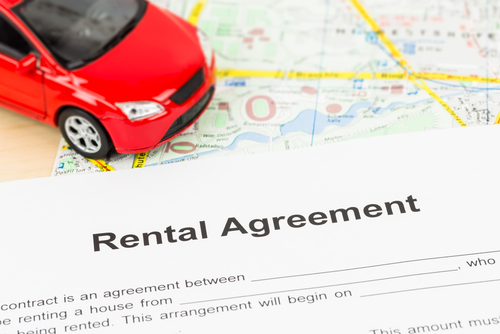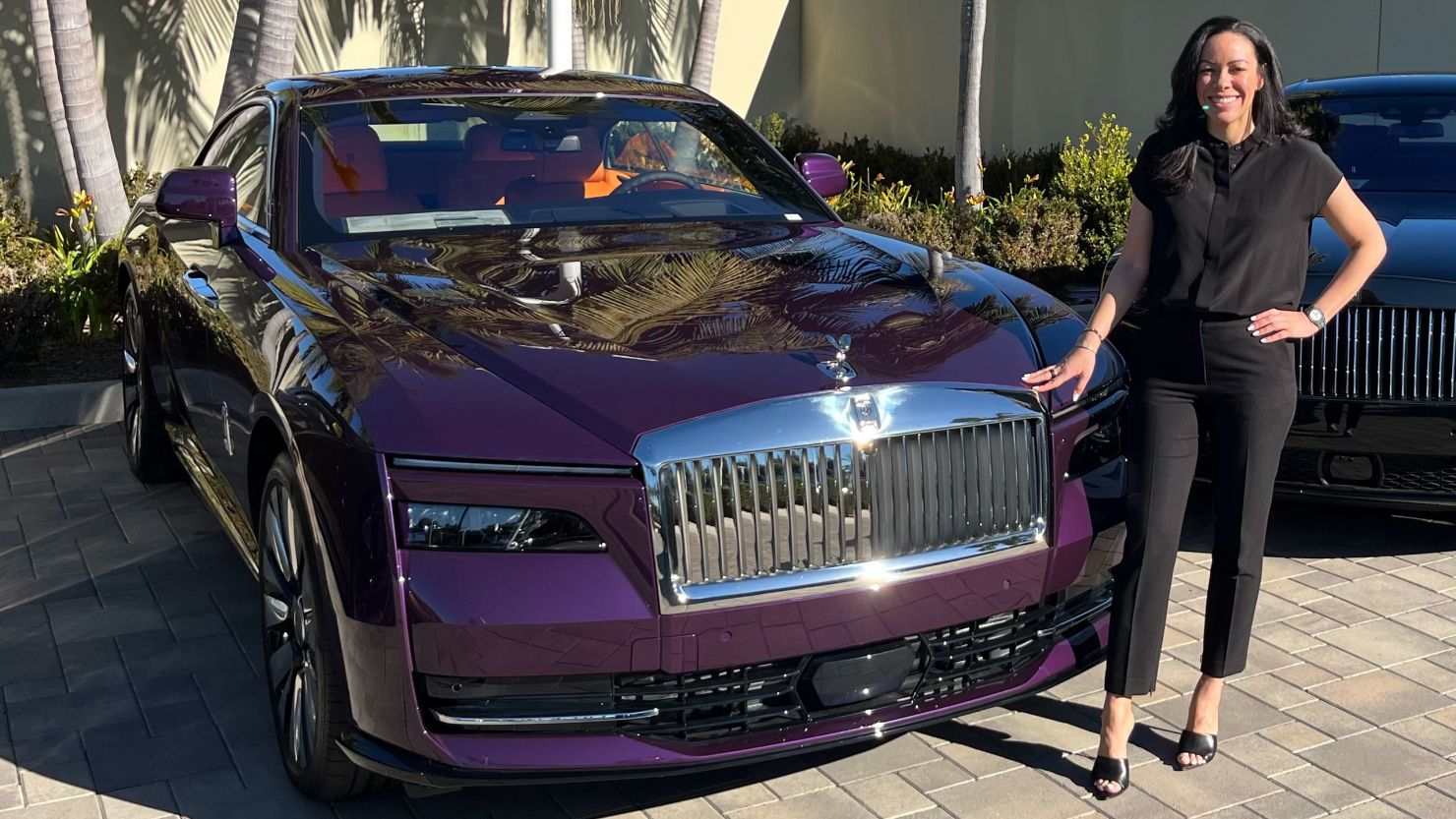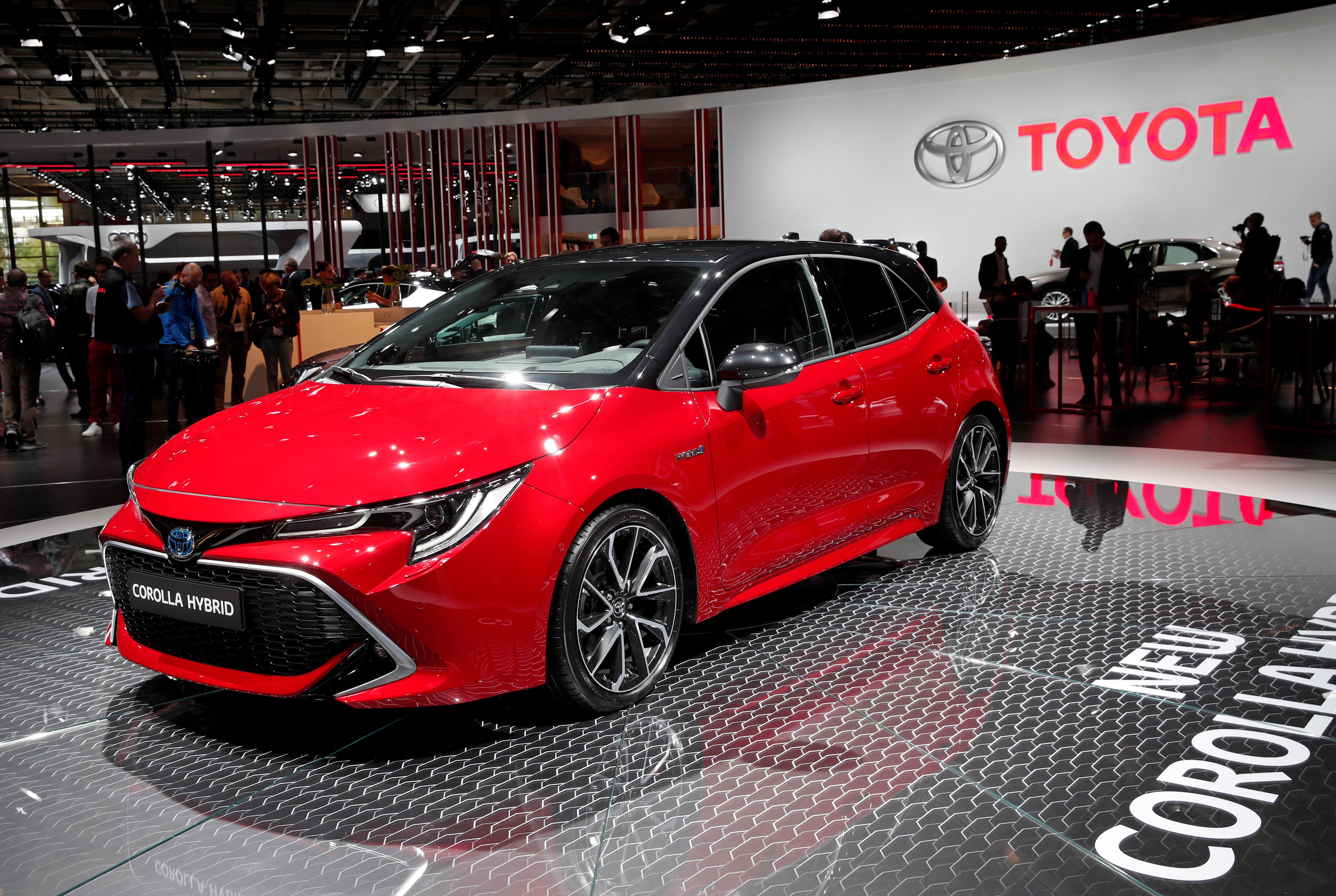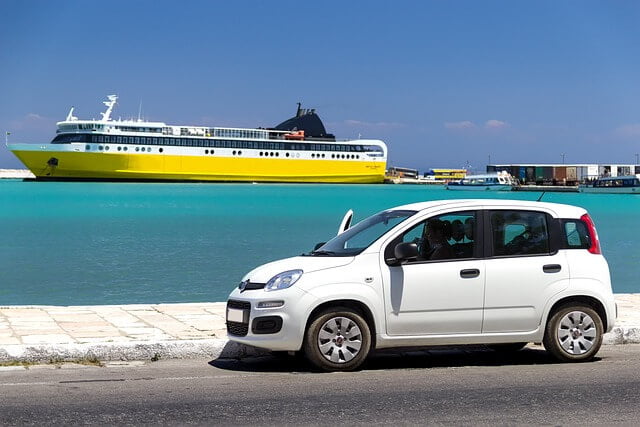Is Renting Out Your Car a Good Business Idea in Australia?
Are you thinking of businesses you can venture into? Do you have a car or fleet of cars and you want to know if renting them out will be a good business idea in Australia?
This blog gives an overview of the car rental business in Australia and highlights why this is a good business idea to explore.
Overview of the Car Rental Business in Australia
Car rental business involves hiring out automobiles to the public for short periods of time usually from few hours to few weeks.
Both individuals and companies consider renting cars for different occasions because it costs less than owning a car.
Renting out your car can be a very lucrative business especially in places like Australia where people need to save money on car payments and insurance.
According to Ibisworld, the car rental industry fares well in Australia because of the country’s large landmass and low population density which necessitates travel by car and ensures demand.
Here are some of the reasons why renting out cars in Australia is a good business idea.
High demand
Before you start any business, you need to know how relevant it is to the consumers.
Renting out your car in Australia is a great business idea because there is a High demand for it.
According to statista, Australia’s car rental market is seeing increased demand for eco friendly vehicle options, particularly in urban areas. A High demand will guarantee a steady flow of income and this makes for a good business idea.
During the global pandemic, there were travel restrictions that had people locked up within the four walls of their home unable to travel. Rental car business suffered during this era. Now that we are post covid, no more travel restrictions, people are willing to travel like never before and renting a car is already an option to do this.
People opt for car renting because it is more comfortable and economical than owning a car.
Also Read: How Debt and Equity Investments Differ in Australia
Fast business development
Whether a business idea will be successful depends to a large extent on how easy or otherwise it is to develop. Renting out your car especially in Australia is a great business because of how easy and fast it is to start and develop.
The steps to follow are not ambiguous and do not take too much time. All you need is to secure funding, register your business, find a strategic place and search for employers. You can get this done in a couple of days or weeks and your business is ready to start off.
Easy scalability
Car rental business is easily scalable. You can start off small but you can expand the business and scale down the line.
You can introduce new categories of cars and increase the numbers of cars you use. Also, you can open new rental points in other viable locations.
Another way to scale is to expand your target audience or customer base.
Business trends and processes change daily, so there may be demands for new products and features. You can also introduce new business models and pricing tiers that will suit different types of customers.
Flexibility
Since you are the owner of your business, you have enough flexibility. You may decide to block off certain days of the weeks maybe weekends, for rest.
Also, ou may decide to only work for certain hours on each day. You can also set apart minimum rental periods. The time you put into the business is totally dependent on you.
Also, you have enough flexibility in dealing with your customers. Based on your customers preferences or requests you can choose varying vehicles to meet their needs.
You can infuse discounts and bonuses for return customers to increase patronage.
Low startup costs
Compared to other businesses, the cost of starting a car rental business in Australia is low. You can easily start small and expand gradually. There are also no overhead costs in car rental business. Nothing like storage or packaging costs.
High margins
If managed carefully, the gross margins for a car rental business can be high. This will allow for easy expansion and scaling of your business.
Freedom to choose your clients
You can choose the kind and number of into you want to work with. Its either you work with few clients that pay well or many clients with average pay. The choice is yours to make.
Unlimited income potential
There is no limit to the amount of money you can make if you rent out you car for business in Australia. It all depends on your business skills and how much effort you put into the business.
There are different business models you can choose from and multiple sources of revenue for a car rental business. You can also build a solid network of clients who will use your services regularly.
Simple business model
A good business idea is one that doesn’t require complex processes to execute. A car rental business has the advantage of being a simple business model that can be launched and operated seamlessly.
Economy of time
Renting out your car is a good business idea that doesn’t require too much time. You also do not need many staffs. Once you have made the initial effort at the start of the business with purchase, registration etc. Not much is required of you for the business to run.
Quick return on investment
Unlike businesses that take time before yielding returns, a car rental business will yield returns within 3 to 5 years. If you are buying a ready to made business, or move to larger cities, you can even start seeing returns in less than two years.
Also Read: How to Get a Business Line of Credit with Bad Credit in Australia
Conclusion
Renting out your car in Australia is a good business idea you can venture into.
The high demand, fast development, easy scalability, flexibility, low startup costs, high margins, quick return among other reasons are what makes car rental business a great business in Australia.
FAQs
Is it worth it to rent a car in Australia?
The general answer is yes!
However, whether it’s worth renting a car in Australia depends on several factors, including your travel plans, budget, and personal preferences.
Here are some points to consider:
1. Convenience and flexibility:
Renting a car in Australia provides you with the convenience and flexibility to explore the country at your own pace, especially if you plan to visit multiple destinations or remote areas. It allows you to travel independently and take detours along the way.
2. Distances:
Australia is a vast country, and distances between major cities and attractions can be significant. Renting a car can make it easier to cover long distances and reach remote locations that may not be accessible by public transportation.
3. Public transportation availability:
In major cities like Sydney, Melbourne, and Brisbane, public transportation systems (trains, buses, and trams) are generally reliable and efficient. However, in smaller towns and rural areas, public transportation options may be limited, making a rental car more practical.
4. Cost:
Renting a car in Australia can be expensive, especially during peak seasons or in popular tourist destinations. You’ll need to factor in the rental cost, fuel expenses, and any additional fees (e.g., one-way rentals, insurance, tolls). Compare these costs with other transportation options, such as domestic flights, trains, or buses, to determine the most cost-effective choice for your itinerary.
5. Driving conditions:
Australia has excellent road infrastructure, but driving in remote areas can be challenging due to long stretches of open road, limited services, and potential encounters with wildlife. Consider your comfort level and experience with driving in such conditions.
6. Travel party size:
If you’re traveling in a larger group or with a family, renting a car may be more economical and convenient compared to using public transportation or taxis.
7. Attractions and activities:
If your travel plans involve visiting national parks, coastal drives, or engaging in outdoor activities like hiking or surfing, having a rental car can provide easier access and transportation for your gear.
Overall, renting a car in Australia can be worthwhile if you value the independence, flexibility, and convenience it offers, especially if you plan to explore remote areas or cover long distances. However, it may not be the most cost-effective option for shorter trips or if you plan to stay primarily in major cities with good public transportation systems.
Car rental business license requirements
The specific requirements for obtaining a car rental business license can vary depending on the state, territory, or local jurisdiction in which you plan to operate. However, here are some common requirements you may need to fulfill to start a car rental business in Australia:
1. Business Registration:
You will need to register your business with the appropriate government agency, such as the Australian Securities and Investments Commission (ASIC) if you plan to operate as a company or the Australian Business Register if you plan to operate as a sole trader or partnership.
2. Australian Business Number (ABN):
You will need to apply for an Australian Business Number (ABN) from the Australian Taxation Office (ATO). An ABN is a unique identifier used for tax and other business purposes.
3. Goods and Services Tax (GST) Registration:
If your annual turnover is expected to exceed the GST registration threshold (currently $75,000), you will need to register for GST with the ATO.
4. Business Premises:
Depending on your local council regulations, you may need to obtain approval or a permit to operate a car rental business from your premises. This may involve meeting zoning requirements and complying with parking regulations.
5. Motor Vehicle Licensing:
You will need to obtain the appropriate licenses and registrations for the vehicles in your rental fleet. This typically involves registering each vehicle with the state or territory transport authority and paying applicable fees and taxes.
6. Insurance:
You will need to obtain appropriate insurance coverage for your rental vehicles, including third-party liability insurance and comprehensive insurance to cover damage or theft.
7. Consumer Protection Compliance:
You may need to comply with consumer protection laws and regulations, such as providing clear rental agreements, disclosing fees and charges, and adhering to fair trading practices.
8. Industry Memberships:
Although not mandatory, it may be beneficial to join industry associations like the Australian Rental Car Group (ARCG) or the Australian Automotive Aftermarket Association (AAAA), which can provide guidance, resources, and advocacy for rental car businesses.
It’s important to note that additional requirements may apply depending on the specific state or territory where you plan to operate, as well as the local council regulations. It’s advisable to consult with relevant government agencies, industry associations, and legal professionals to ensure you understand and comply with all applicable laws and regulations.
Others Also Read: 7 Benefits of Managing Your Finances as a Student in Australia
Car rental business profit margin
The profit margin for a car rental business can vary significantly depending on several factors, such as location, fleet size, operating costs, and competition. However, here are some general insights into the profit margins in the car rental industry:
1. Industry average:
According to various industry reports, the average profit margin for car rental companies typically ranges between 5% and 15% of total revenue. However, this can fluctuate based on market conditions and individual business strategies.
2. Fleet utilization:
One of the key drivers of profitability in the car rental business is fleet utilization. Companies aim to maximize the number of days each vehicle is rented out to generate revenue. Higher utilization rates can lead to higher profit margins.
3. Operating costs:
Significant operating costs for car rental businesses include vehicle acquisition and maintenance, insurance, fuel, staffing, and facility expenses. Effectively managing these costs is crucial for maintaining profitability.
4. Pricing strategies:
Car rental companies can employ various pricing strategies, such as dynamic pricing, package deals, and discounts, to maximize revenue and profitability. Effective yield management practices can help optimize pricing and improve profit margins.
5. Ancillary revenue:
Many car rental companies generate additional revenue from ancillary services, such as insurance products, GPS navigation systems, child seats, and other add-ons. These ancillary services can contribute significantly to overall profitability.
6. Location and competition:
Profit margins can vary based on the location and level of competition. Urban areas with high demand and limited competition may allow for higher profit margins, while rural areas or highly competitive markets may have lower profit margins.
7. Brand and market positioning:
Established brands with a strong market position and loyal customer base may be able to command higher prices and achieve higher profit margins compared to smaller or lesser-known rental companies.
It’s worth noting that profit margins can fluctuate based on seasonal demand, economic conditions, and market trends. Additionally, new entrants, disruptive business models, and technological advancements can impact the competitive landscape and profitability of car rental businesses.
While the industry average profit margin provides a general reference point, individual car rental companies may experience higher or lower profit margins based on their specific strategies, operational efficiencies, and market positioning.
Is luxury car rental a good business
Yes! It is a profitable business.
However, Luxury car rental can be a good business opportunity, but it also comes with its own set of challenges and considerations. Here’s an analysis of some key factors to evaluate:
Pros:
1. Higher profit margins: Luxury cars can command significantly higher rental rates compared to standard vehicles, leading to potentially higher profit margins.
2. Prestige and exclusivity: Offering luxury vehicles can attract high-end customers who are willing to pay a premium for a luxurious and exclusive experience.
3. Differentiation: A luxury car rental business can differentiate itself from mainstream rental companies, creating a niche market and potentially avoiding direct competition.
4. Corporate and event clientele: Luxury car rentals are often in demand for corporate events, weddings, and special occasions, providing a steady stream of potential customers.
Cons:
1. Higher initial investment: Acquiring a fleet of luxury vehicles requires a substantial upfront investment, which can be a significant barrier to entry for some businesses.
2. Higher operating costs: Luxury cars generally have higher maintenance, insurance, and depreciation costs, which can impact profitability.
3. Limited customer base: The market for luxury car rentals may be relatively small compared to the broader rental market, limiting the potential customer base.
4. Brand and reputation management: Maintaining a luxury brand image and providing exceptional customer service is crucial, as any negative experiences can significantly impact the business’s reputation.
5. Risk of damage or theft: Luxury vehicles are more likely to be targets for theft or vandalism, increasing the need for comprehensive insurance coverage and security measures.
To succeed in the luxury car rental business, it’s essential to carefully evaluate the local market demand, target customer segments, and competition. Additionally, having a solid business plan, adequate financing, and a strategy for managing the higher costs associated with luxury vehicles is crucial.
Some key considerations include sourcing high-quality luxury vehicles, establishing strategic partnerships with hotels, event venues, and corporate clients, and developing a strong marketing and branding strategy to attract and retain high-end customers.
Overall, while the luxury car rental business can be profitable, it requires significant initial investment, effective cost management, and a focus on delivering exceptional customer experiences to justify the premium prices charged for luxury vehicles.
What type of car is rented the most?
Toyota Corolla is the most rented type of car.
According to various industry reports and surveys, compact and mid-size sedans are typically the most rented vehicle types in the car rental industry.
Here are some of the most commonly rented car categories:
1. Compact Sedans:
These smaller sedans are popular choices for individual travelers or small groups due to their fuel efficiency, maneuverability, and affordability. Examples include the Toyota Corolla, Honda Civic, Hyundai Elantra, and Ford Focus.
2. Mid-Size Sedans:
Slightly larger than compact sedans, mid-size models offer more passenger and cargo space while still maintaining decent fuel economy. Popular mid-size rental cars include the Toyota Camry, Honda Accord, Nissan Altima, and Chevrolet Malibu.
3. Compact SUVs/Crossovers:
With their combination of space, versatility, and elevated driving position, compact SUVs and crossovers have gained popularity among rental customers in recent years. Common examples are the Toyota RAV4, Honda CR-V, Ford Escape, and Nissan Rogue.
4. Full-Size Sedans:
Although not as popular as compact and mid-size sedans, full-size sedans are often chosen by business travelers or larger groups for their spacious interiors and comfortable ride. Models like the Chevrolet Impala, Toyota Avalon, and Chrysler 300 fall into this category.
5. Minivans:
For families or groups with more than five passengers, minivans like the Dodge Grand Caravan, Honda Odyssey, and Toyota Sienna are popular rental choices due to their ample seating and cargo capacity.
The preferences for specific vehicle types can vary depending on factors such as location, seasonality, and customer demographics. For example, larger SUVs and pickup trucks may be more popular in certain regions or during peak travel seasons.
Additionally, rental companies often try to align their fleet mix with customer demand and market trends, adjusting their inventory accordingly. Factors like fuel prices, consumer preferences, and environmental concerns can also influence the popularity of certain vehicle types in the rental market.
What is the most profitable rental car company?
Based on recent financial reports and industry analysis, Enterprise Holdings (parent company of Enterprise Rent-A-Car, National Car Rental, and Alamo Rent A Car) is widely considered the most profitable rental car company in the world.
While precise profit figures are not publicly available, industry analysts estimate that Enterprise Holdings generates operating margins in the range of 10% to 15%, significantly higher than its publicly traded competitors.
Other major rental car companies, such as Hertz and Avis Budget Group, have struggled with profitability in recent years due to various factors, including fleet management challenges, pricing pressures, and high debt levels.
It’s worth noting that the rental car industry is highly competitive, and profitability can fluctuate based on economic conditions, travel trends, and market dynamics. However, Enterprise Holdings’ business model, operational efficiency, and market positioning have consistently contributed to its status as the most profitable rental car company.
Which car is best for rental business
The best cars for a rental business is Toyota Camry as it is the most rented car in the world.
The best cars for a rental business depend on various factors such as comfort, dependability, fuel economy, and luxury. Toyota Camry, Chevrolet Suburban, Mazda3, Kia Sorento, Hyundai Kona, BMW 5 Series, Tesla Model 3, Ford Mustang, Toyota Vellfire, and Mercedes S-Class with Maybach Kit are some of the top options.
These cars offer a range of benefits, including spacious interiors, good fuel economy, and modern designs. By considering these factors, you can choose the best car for your rental business that meets the needs of your customers.
What is another word for car rent?
Another word for car rent is car hire or vehicle rental.
Some of these terms, like “car hire” and “vehicle rental,” are more commonly used in certain regions or countries, while others, such as “rent-a-car service” or “car rental agency,” are more descriptive phrases. The term “car leasing” generally refers to longer-term rental agreements, while “car sharing” is often associated with short-term or hourly rentals.
Ultimately, these terms all refer to the business of providing temporary access to vehicles for a fee, but they may have slightly different connotations or nuances depending on the context and region.
Is renting out your car a good idea
Yes, renting your car is a good idea and equally a way to generate some income.
However, whether renting out your personal car is a good idea or not depends on several factors, and it’s essential to carefully consider the potential benefits and risks involved.
Potential Benefits:
1. Additional income:
Renting out your car when it’s not in use can provide an extra source of income, which can be helpful in offsetting the costs of car ownership or supplementing your regular income.
2. Efficient utilization:
If your car sits idle for long periods, renting it out can help maximize its utilization and generate revenue from an otherwise underutilized asset.
3. Flexibility:
Many car-sharing platforms allow you to rent out your car on your own terms, giving you flexibility in terms of when and how often you want to make your vehicle available for rent.
Potential Risks:
1. Wear and tear:
Renting out your car will inevitably lead to additional wear and tear, which can accelerate depreciation and potentially increase maintenance costs.
2. Liability concerns:
You may be held liable for any accidents or damages caused by the renter while using your car, which could lead to legal and financial consequences.
3. Insurance implications:
Your personal auto insurance policy may not cover incidents that occur during a rental period, and you may need to purchase additional coverage or adjust your policy to ensure proper protection.
4. Personal belongings and privacy:
You’ll need to remove all personal belongings from your car and ensure there’s no sensitive information or data left behind, as renters will have access to the vehicle.
5. Potential misuse:
There’s always a risk that renters may misuse or mistreat your car, which could lead to costly repairs or other issues.
6. Reliability of renters:
While most car-sharing platforms have screening processes, there’s still a degree of uncertainty when it comes to the reliability and trustworthiness of renters.
If you decide to rent out your car, it’s crucial to thoroughly research and understand the policies and procedures of the car-sharing platform you choose, as well as the legal and insurance implications in your area. Additionally, you’ll need to be diligent about maintaining your car and ensuring it meets all safety and regulatory requirements for rental vehicles.
Overall, renting out your car can be a viable option for generating additional income, but it’s essential to carefully weigh the potential risks and benefits before making a decision. It may not be suitable for everyone, especially if you have concerns about the potential wear and tear on your vehicle or the liability risks involved.
How to rent out your car privately
To rent out your car privately, follow these steps:
1. Check Legal and Financial Restrictions:
– Ensure that it is legal to rent out your car in your area. Check your financing agreement and insurance policy to see if there are any restrictions.
2. Document Your Vehicle’s Condition:
– Take clear photos of your car’s interior and exterior before and after each rental to resolve damage disputes.
3. Set Clear Rental Parameters:
Define the rental period, mileage limit, and rules (like no smoking) up front. Communicate these restrictions and regulations clearly to the renter, and ensure you have contract language to define consequences if they breach them.
4. Establish Safe Pick-up and Drop-off Points:
Choose safe and convenient locations for handing over your keys and car. You may be able to purchase and install remote access options to make the process easier[9].
5. Create a Process to Vet Drivers:
Depending on your preference, this could be something simple such as running background checks for each driver to ensure they don’t have a history of DUIs or restricted licenses.
6. Manage Your Customers’ Personal Information:
Use a secure system to keep your customers’ personal information safe from hackers or easily being discovered by others[9].
7. Choose a Payment Processing Platform:
-Choose a platform for your payments, whether that’s setting up something online on your website or managing it in-person with a smartphone or tablet and connected payment system.
8. Prepare Your Car for the Next Borrower:
Manage cleaning and refueling, including communicating expectations to borrowers and charging penalties on those who don’t comply.
9. Pay Extra Insurance Costs:
Using your car for business purposes often leads to higher insurance premiums.
10. Protect Yourself Legally and Financially:
Draft contracts, have the appropriate insurance, and set up a payment system to ensure you can collect payments, bill for fines after the vehicle is returned, and handle any disputes if borrowers come back saying they did not cause a particular type of damage to warrant the fee.
By following these steps, you can ensure a smooth and safe experience for both you and your renters.
Read Also: Startline Motor Finance: A Complete Guide












